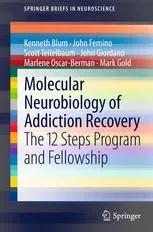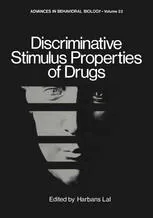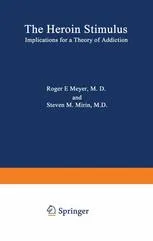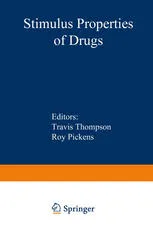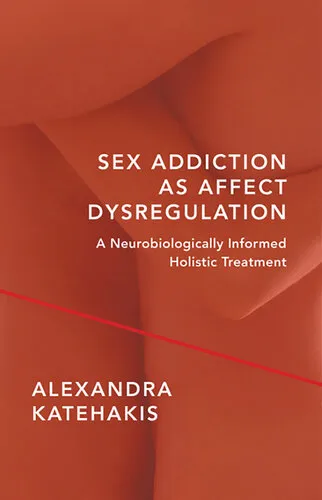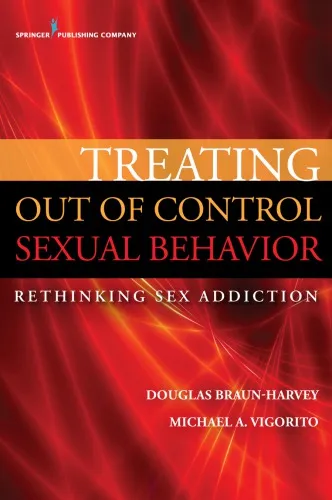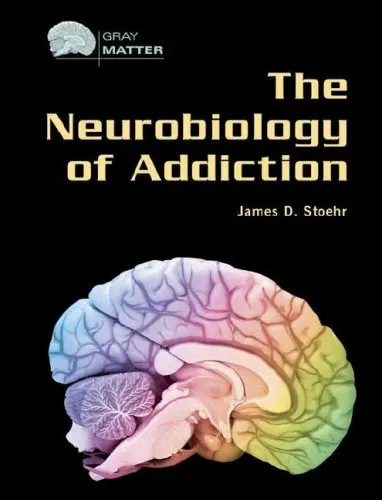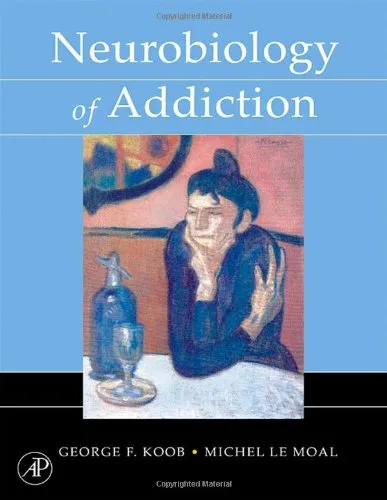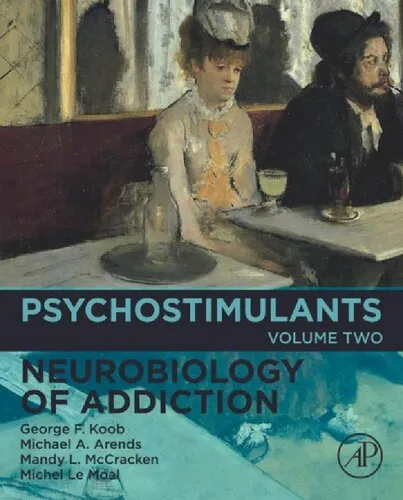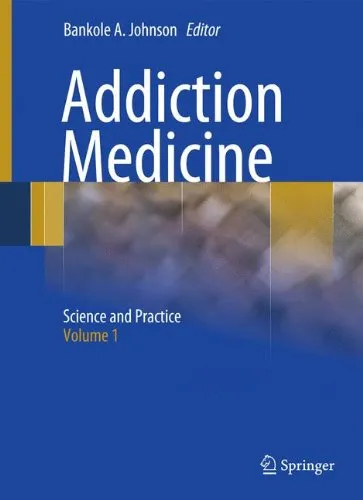Molecular Neurobiology of Addiction Recovery: The 12 Steps Program and Fellowship
4.5
Reviews from our users

You Can Ask your questions from this book's AI after Login
Each download or ask from book AI costs 2 points. To earn more free points, please visit the Points Guide Page and complete some valuable actions.Related Refrences:
Introduction to Molecular Neurobiology of Addiction Recovery: The 12 Steps Program and Fellowship
Addiction is a complex interplay of biology, psychology, behavior, and social influences. Recovery, too, is multifaceted, requiring an intricate approach that acknowledges these dynamics. Molecular Neurobiology of Addiction Recovery: The 12 Steps Program and Fellowship explores the science behind addiction and the mechanisms by which the 12-step program aids in physical, psychological, and spiritual recovery.
This book bridges the gap between the profound wisdom of the 12-step framework and cutting-edge molecular neurobiology, offering a fresh perspective on addiction treatment. Written for clinicians, researchers, and even those seeking recovery, the book demystifies how brain chemistry intertwines with behavioral change, spiritual growth, and the communal bonds fostered through 12-step fellowships.
Addiction, often labeled as a chronic relapsing brain disease, alters the very structure and function of our neural circuits. This text underscores how the 12-step program's principles — including surrender, accountability, and spiritual awakening — can effectuate profound neuroplasticity in the brain, aiding long-term recovery. By grounding its insights in science, this book invites readers to appreciate the 12-step program not just as a spiritual journey but as a dynamic process with tangible neurobiological benefits.
Detailed Summary of the Book
Molecular Neurobiology of Addiction Recovery delves deep into the neuroscience of addiction and recovery. The book begins with an exploration of the brain's reward system, focusing on the critical role of neurotransmitters, such as dopamine, serotonin, and endorphins, in driving compulsive behaviors. It then examines how chronic substance use rewires these systems, leading to dependency and a pervasive sense of powerlessness.
Subsequent chapters illuminate how each step in the 12-step program correlates with specific neurobiological processes. For example, the act of surrender and acceptance (Step 1) aligns with resetting dysfunctional prefrontal cortex activity, while honest self-reflection (Step 4 — making a searching and fearless moral inventory) promotes the recalibration of stress-response pathways. Steps that encourage building community and seeking forgiveness are revealed to stimulate oxytocin production, fostering emotional resilience and social connection.
The book also places a significant focus on the fellowship component, explaining how group interactions and mutual support create vital neurochemical shifts. It discusses the role of spirituality and mindfulness in modulating neural circuits tied to impulse control, stress reduction, and emotional regulation. Finally, it provides actionable strategies for clinicians to incorporate neurobiological principles into treatment plans for those in recovery.
Key Takeaways
- Addiction is deeply rooted in neurobiological dysfunctions, particularly in the brain's reward and executive functioning systems.
- The 12-step program facilitates recovery by promoting behavioral, psychological, and spiritual changes, which are mirrored by tangible neuroplasticity in the brain.
- Principles such as surrender, accountability, and service promote healing on both cellular and systems levels in the brain.
- Fellowship and community support are essential components of recovery, fostering neural pathways linked to trust, empathy, and connection.
- Science and spirituality are not at odds — rather, they can coexist to provide a holistic framework for addiction recovery.
Famous Quotes from the Book
"The beauty of the 12 steps is not just in their transformative power over behavior, but in their ability to elicit profound cellular changes in the brain, paving a path to sustainable recovery."
"Addiction erects walls of isolation; recovery, through fellowship and community, rebuilds bridges of connection, both interpersonally and neurologically."
"Healing the mind inevitably requires healing the soul. The 12 steps, grounded in spirituality, offer not just sobriety but liberation from the chains of addiction."
Why This Book Matters
Addiction continues to be one of the most pressing public health crises of our time, claiming lives and disrupting families at an alarming rate. What sets this book apart is its ability to demystify the interplay between biology and behavior, showing how every aspect of the 12-step program has a corresponding neurobiological rationale. By providing evidence-based explanations, this book validates the experiences of those in 12-step programs, offering an added layer of encouragement and understanding.
For practitioners, this book is an invaluable resource, equipping them with insights and tools they can use to better assist patients. For individuals in recovery, it offers hope — concrete evidence that change is not just possible but scientifically grounded. For researchers, it provides a call to action to continue bridging the worlds of neuroscience and recovery systems.
Molecular Neurobiology of Addiction Recovery matters because it represents a union of science and spirituality, offering a comprehensive and compassionate roadmap toward healing. It celebrates the resilience of the human brain and spirit, reminding us all that recovery is not just the absence of addiction but the presence of wholeness and vitality.
Free Direct Download
You Can Download this book after Login
Accessing books through legal platforms and public libraries not only supports the rights of authors and publishers but also contributes to the sustainability of reading culture. Before downloading, please take a moment to consider these options.
Find this book on other platforms:
WorldCat helps you find books in libraries worldwide.
See ratings, reviews, and discussions on Goodreads.
Find and buy rare or used books on AbeBooks.
1320
بازدید4.5
امتیاز0
نظر98%
رضایتReviews:
4.5
Based on 0 users review
Questions & Answers
Ask questions about this book or help others by answering
No questions yet. Be the first to ask!
